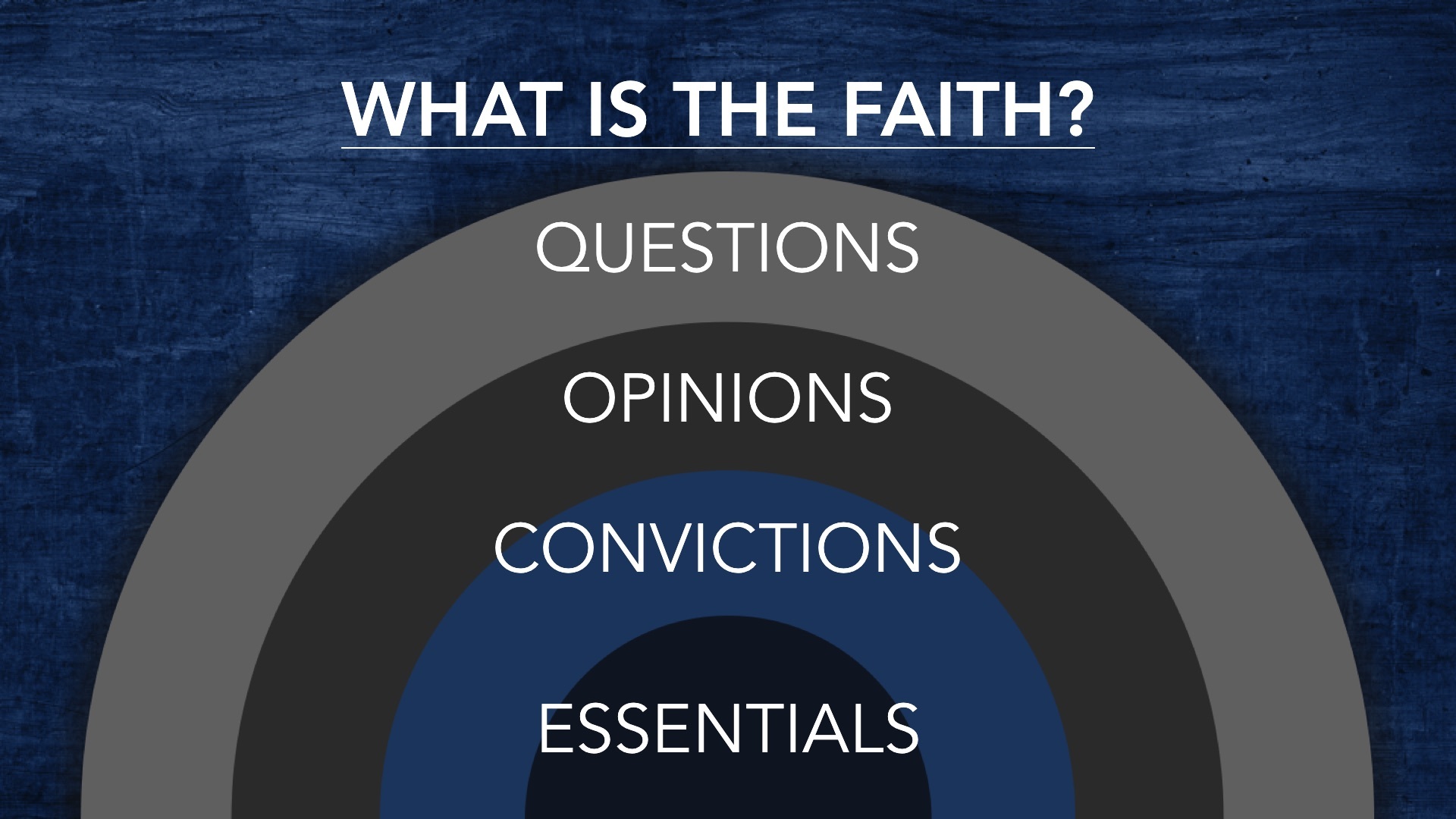The following blog post contains notes and application questions from our August 5, 2018 message, Contending for the Faith. This message is part of our series, "The 7." See other messages in this series.
Summary
Do you ever find yourself in arguments over the dumbest things? What about arguments over things of the faith? The truth is, sometimes, we argue about some of the most ridiculous things. There are some things that don’t matter that we should never argue about, and there are some things that do matter that we need to take a stand on. As we start a new series, “The 7,” Blake Holmes teaches about the essentials and the non-essentials of the Christian faith, and how to discern between the two.
Key Takeaways
1. What is the faith we are to contend for?
The “faith” refers to the essential beliefs (or doctrines) of Christianity:
The Trinity, depravity of man, deity and humanity of Jesus, salvation by grace through faith, resurrection of Christ, & second coming of Christ
The essential doctrines answers these three questions, the answers of which separate Christians from non-Christians:
- Who is Jesus?
- What was He doing on the cross?
- Did He rise again?
Convictions are the beliefs that separate denominations and impact the health and vitality of a church.
Think of these four categories as concentric circles, with essentials starting in the middle and questions being on the outside:

What’s confusing to an outside world is when we make convictions, opinions and questions out to be essentials.
2. Why are we to contend for the faith?
Doctrine protects from error
Ideas have consequences and bad ideas have victims.” –John Stonestreet
Doctrine provides instruction for living
Belief drives behavior
_If I really believe the Bible is the Word of God, then how could I not read it?
If I really believe that I am saved by grace through faith, then how could I not forgive others?
If I really believe Jesus Christ is the only means of salvation, then how could I not tell others?
_There is a difference between accidental belief (said faith) and evidential belief (saving faith).
Doctrine promotes unity
Christians have been united around the historic confessions of the faith throughout the centuries
3. How are we to contend for the faith?
Similar to the concentric circles for essentials, convictions, opinions, and questions, we are to contend for the faith in four ways, with boldly being in the middle and wisely being on the outside: Boldly, Humbly, Respectfully, Wisely.
- The liberal church questions essentials and convictions.
- The fundamentalist church makes opinions and questions essentials.
Questions for Reflection and Discussion
1. What was the last thing you got in an argument over? In hindsight, was it worth arguing for? Identify the top three areas you are most likely to argue, and if they are not essentials of the Christian faith, put some guard rails in place to prevent yourself from going there.
2. Which of the three things that doctrine does—protects from error, provides instruction for living, promotes unity—do you need the most help and growth in? Share this with your community group, and then memorize the Scripture that corresponds with that area (protects from error: 2 Timothy 4:3-4; provides instruction for living: Romans 12:1-2; promotes unity: Ephesians 4:1-6).
3. Are you more prone to drift toward theological liberalism (questioning the essentials) or fundamentalism (making questions essential)? Ask five people in your life what they think, and then ask the same five people to help you identify one way you can stay closer to the middle.
Mentioned or Recommended Resources
- Suggested Scripture Study: Jude 1:3, 1 Corinthians 15:3-5, 2 Timothy 4:1-4, Romans 12:1-2, Ephesians 4:1-6, 2 Timothy 2:22-26
- Statement: What We Believe At Watermark
- Equipping Webinar: The Essential and Non-Essential Doctrines of Christianity
- Blog: What do Christian’s Believe?
- Article: A Call For Theological Triage and Christian Maturity
https://albertmohler.com/2004/05/20/a-call-for-theological-triage-and-christian-maturity-2/
For more great content from Watermark, follow us on our social channels:
Facebook | Instagram | Twitter
If you’re in the DFW area, join us for a weekend service. Learn More
